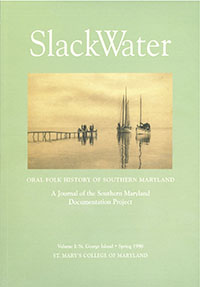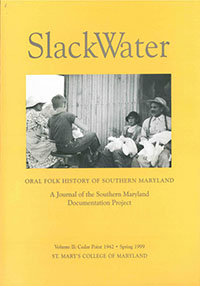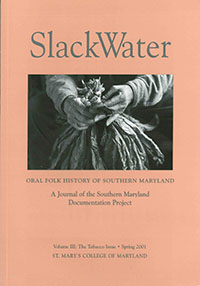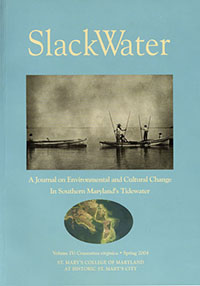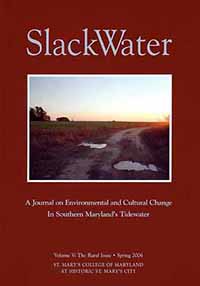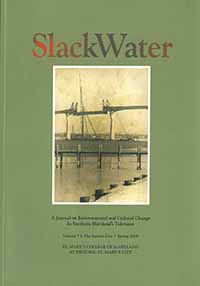The Impacts
I came to St. Mary’s County in 1960, to start instrumental music in the public school system. I went to Carver, which was a high school at that time, that, as you know, was segregated. Carver was the high school for the black kids, and Great Mills was the high school for the white kids. Great Mills did have a band teacher, at that time, and… I went [to Carver] to start a music program.
[When I got to Carver, I found that] nobody had any musical instruments, and, well, nothing. Ground zero. All they had was an idea, and that was it, and I was to make it happen.
In terms of getting instruments, it was very difficult. Many of the instruments we had came from families who had moved here, who had somewhere before been involved in music. Somebody pulls something out of their attic, and, you know, the pads are dried up and falling out, or [the instrument] has got holes and a leak, so I ended up learning how to repair instruments, too. The board bought a few basic instruments, but the quality of what we got was not even close compared to what Great Mills got, and the same thing with band uniforms. The band uniforms that we had at Carver, a man named John Lancaster, was very instrumental, as a parent, in getting other parents organized and helping me to raise money to buy the band uniforms.
I remember taking those kids within that short period of time from folks not even knowing instruments—not a clue, not a clue—to getting to a point where they were winning awards.
I really enjoyed playing my instrument, so if I got an opportunity to go and play, go out of town and play the bands, I’d go. I loved music, and I still love it, as far as that goes. All these people I knew, musicians I had met over the years in college, I used to play with in all kinds of bands. I used to travel and I ended up being in a lot of back-up bands.
A band asked me to play with them and I played with them for a while, but we would go play someplace, and the people wouldn’t pay us, they would want to give us a chicken sandwich, and I said, that won’t work. I had family at this time, and I’ve got to take care of them, and teaching school was not going to do it. So, that’s when I decided to start the Impacts, probably in the late ‘60s, I would say.
Some of the [band members] were students I had taught, and some of them were guys I’d run into, as I was doing my thing out there in the community, and they were all local, and some of them were very talented. We decided, yeah, let’s do this thing, let’s put together the band. I enjoyed it, although there were some frustrations, because I was, besides being one of the performers, I was the booking agent, and the manager, and, fix this, and fix that, and carry this, and carry that, doing everything except play everybody else’s instrument! We did most of, you know, the popular music of the day, whatever was popular at that time.
We had a really good, tight group, and we were trying to see if we could get into the recording industry, and, to make some recordings, and that was the Impacts—it turned out to be a really good group.
Locally, we played at the Golden Cuckoo, and there was the place where the Post Office now is. We played on the base a lot, and we played at Andrews Air Force, all the military bases, and, you know, we did quite a bit of traveling outside of the local area to play music. Washington, DC, and Baltimore, and everywhere else they would pay us. We did a lot of nightclubs …
They did a version of Woodstock down here in St. Mary’s County. I don’t know if you remember that. It was down at the Take It Easy Ranch. We were the opening act at the festival. But we were the opening act, and, I mean, the other acts on the program were … were people who were well known, some of them were extremely famous now … We had just, we had played the night before somewhere in Virginia … and George Winslow had this bus—this big old school bus, it was blue, he had a lot of kids, so they had something called the Winslow Family, we’re “The Winslows,” anyway, that was the bus we used to go on. I remember us getting through playing up there in Virginia, wherever it was, and drove to get, to open up that show. We had, we had a lot of fun, a lot of good, interesting gigs.
Sometime around 1980, ‘79 or ‘80, my house burned down. And we had the band equipment in the house, and it destroyed the equipment, and that pretty much brought it to an end. And around that time, I started Compliance Corporation, so, with the band and its business pretty much over, [the new business] just took all my time. I just didn’t have time to be [playing in a band].

